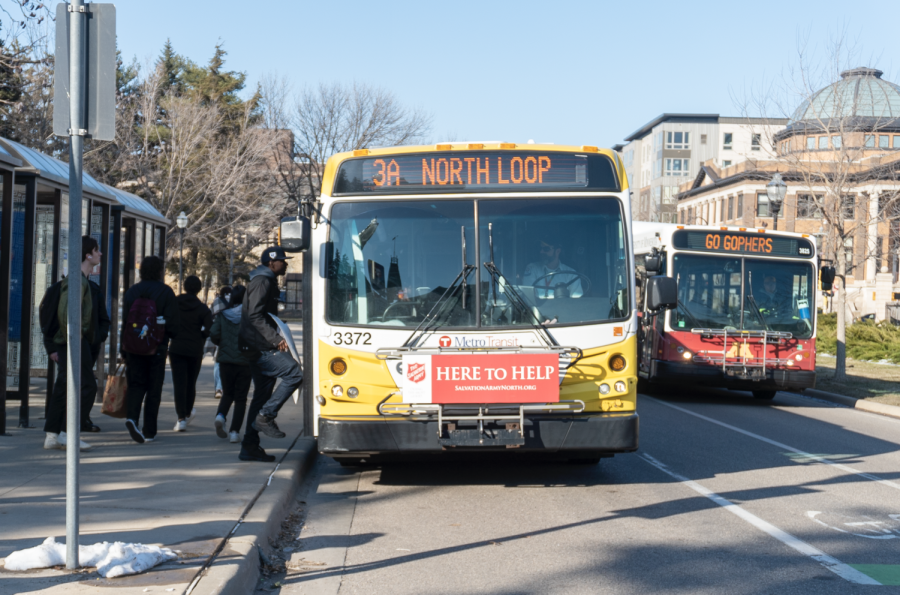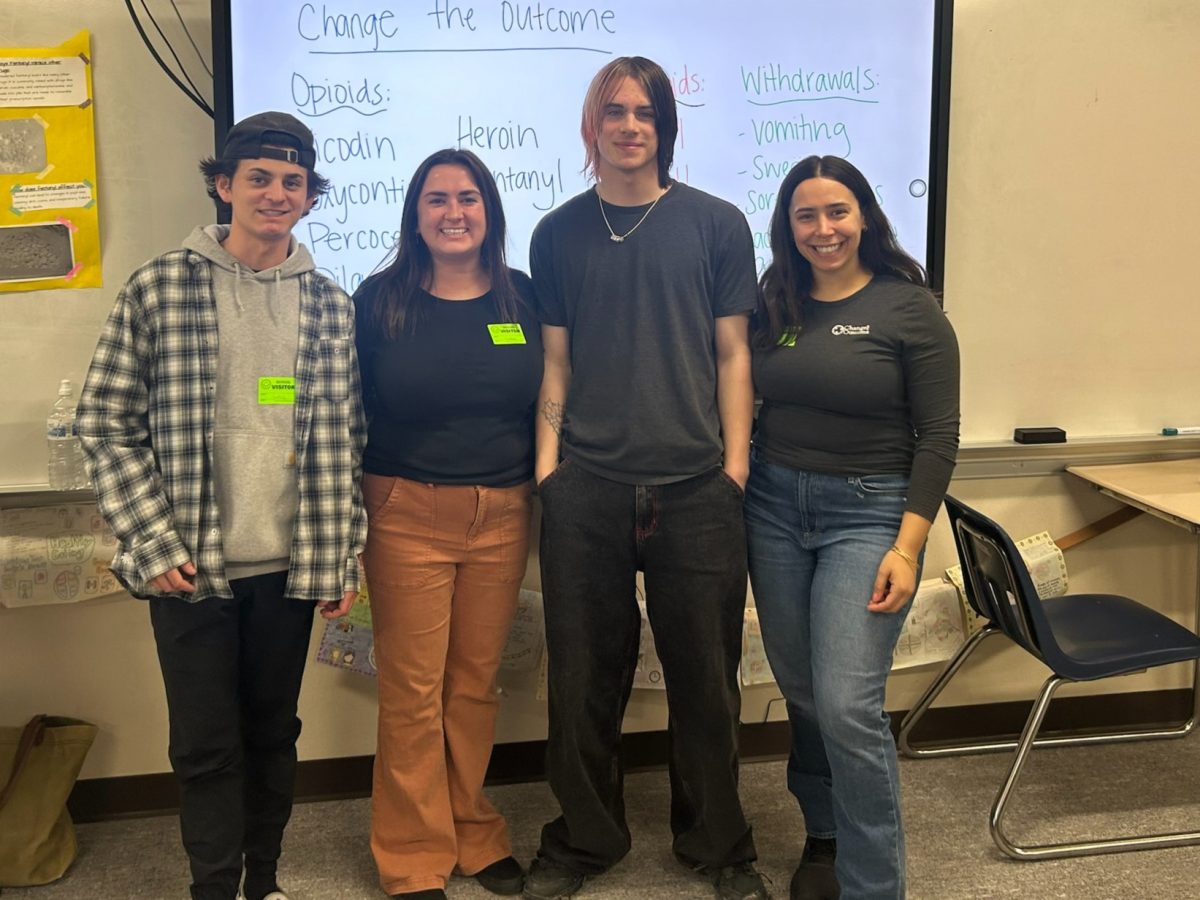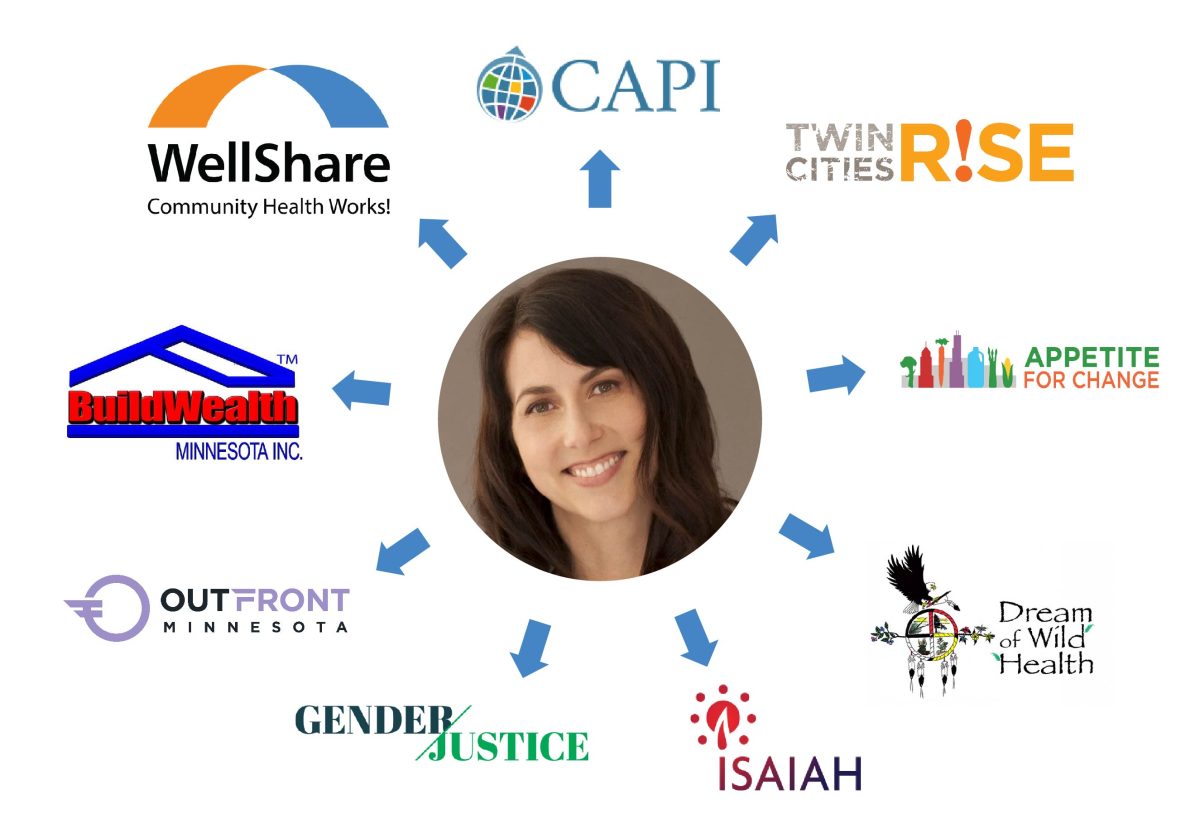About 125 people filled the tables, chairs and couches of Dinkytown’s Varsity Theater on Thursday night for Policy and a Pint, presented by the Citizens League and 89.3 The Current, to discuss campaign finance.
On stage, Judy Blaseg, Jeff Blodgett and Bob Collins represented several perspectives on campaign finance to try to answer the big questions: How much does a successful campaign cost; how is money raised and where does it go?
Blaseg, a veteran fundraiser, knows the process “from the inside,” having raised millions for political candidates and political action committees. She said the process is “not as mysterious as people think it is.”
Most people think action committees impact politics through contributions, Blaseg said, but the bigger effect is the endorsement’s weight with members.
“There are a number of (political action committees) from every political stripe out there,” Blaseg said. “$10,000 is not that much money, but big groups bring tons of people.”
Blodgett knows a thing or two about funding a campaign. For 13 years he served as late U.S. Sen. Paul Wellstone’s campaign manager. He’s now the executive director of Wellstone Action, an organization that trains potential political leaders.
Fundraising is a part of any successful campaign, Blodgett said, not something “evil or dirty.”
He said he thinks federal election spending has “huge problems,” however, with “absurd amounts” being spent.
Blodgett estimated a successful run for Congress would cost about $15 million. Presidential candidates spent more than $670 million in the 2004 election, according to the Federal Election Commission.
That money, Blodgett said, goes to advertising, travel, staffing and, of course, raising more money.
Every 17 cents spent on fundraising nets a dollar return, Blaseg said.
Collins provided the “cynical idealism” of the panel, an offering he dishes out as Minnesota Public Radio’s senior editor and former political editor.
Collins said vision should count more than money in a race.
“You save money as a candidate if you’re a better candidate,” Collins said to a smattering of applause. “I just want better candidates; I don’t care how much you spend anymore.”
Political talk seemed out of place in a room with people perched on overstuffed chairs, couches and beds on both sides of the main floor.
Uptown roommates Kristian Bjornard and Nancy Iverson were seated on a couch near the front of the room with pen and paper in hand waiting for the forum to begin. They said they were at the event more for the politics than the pints (or the appetizers from neighboring Loring Pasta Bar).
“We might not be the most involved in local government policies,” Bjornard said. “But it’s really interesting to hear discourse.”
The pair said they had attended two previous Citizens League Policy and a Pint events, including one in February on the financial barriers facing 20- and 30-year-olds, especially relevant to the two students saddled with student loans.
Richard Heydinger and Tom Lehman frequent Citizens League meetings, in which the average age of members, typically former government and business leaders, is about 55.
Thursday night’s event drew a younger crowd than the previous morning’s League breakfast meeting, the two said before the event started, reflective of the Citizens League’s efforts to get younger people involved in politics.
Lehman, president of Minneapolis consulting firm Lehman Associates, said the younger audience probably was attracted by MPR and the location.
“The subject is serious, but the event doesn’t take itself too seriously,” Lehman said. “And being by the University can’t hurt.”
Harold Shudlick, a Republican running for U.S. Senate against party-endorsed Mark Kennedy in September’s primary, attended the forum Thursday night. He said voters should understand campaign finance disclosures before casting their votes.
“I have proof that I’m not a bought politician,” Shudlick said.
The only contributions to Shudlick for Senate were from Shudlick himself, according to the election commission’s Web site.
Victoria Ford, Citizens League policy associate, said the Policy and a Pint series was organized to get people “engaged in public life.”
“We hope people come to these and get excited,” she said.
Ford said the organization hopes to continue to draw a younger crowd tired of partisan politics, especially just before elections.
“Campaign season is about to hit us as every race is on,” Ford said. “It’s going to hit us like a flood of money and ads.”
Ford expects to continue with an Elections 101 theme at the next Policy and a Pint in September, the topic of which is yet to be determined.
















